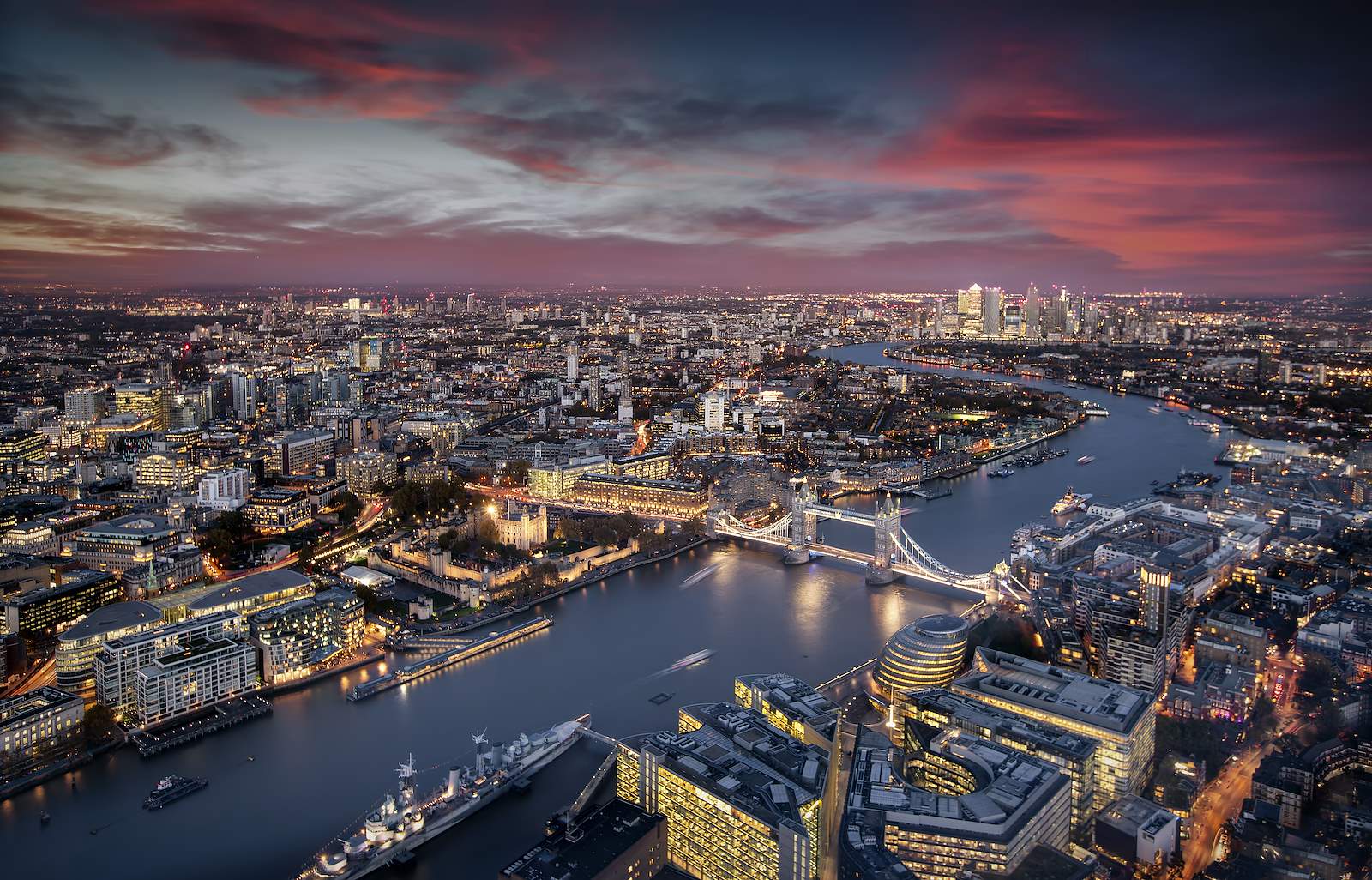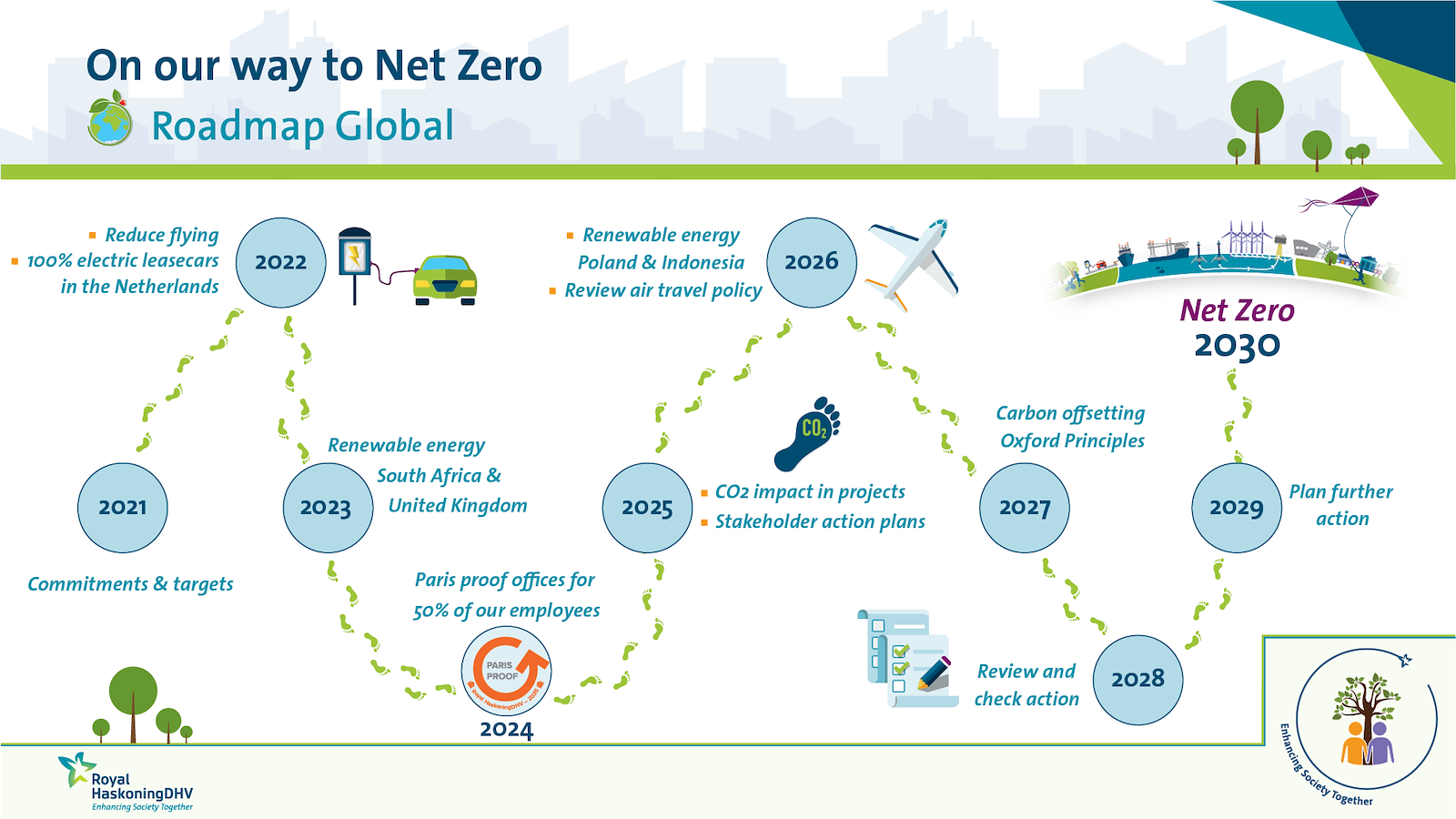Emission Reduction
“We have committed for 2030 targets. That’s more than eight years from now, but our net zero commitment has an immediate impact on our operations and colleagues in all countries. We will make lowest carbon choices in our operations wherever possible, by further greening our energy supply and reducing travel. When flying is needed, we will prefer the lowest carbon option, like direct flights and travel via sustainable operators.”
Erik Oostwegel
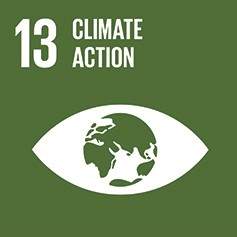
In 2021 we accelerated our climate reduction ambitions:
-
We decided on a more ambitious commitment than our earlier expressed commitment in 2020 (Paris Proof by 2035): We want to reduce our greenhouse gas emissions to net zero by 2030. This commitment has a wider scope than Paris Proof targets as it covers our 65 offices worldwide and the business travel of our 6,000 colleagues. By 2030, our targets are to reduce greenhouse gas emissions related to our offices and cars by 80%, and those related to flights by 50%.
-
We will report annually through science-based targets, which provide further indication of the seriousness of our intent
-
In 2021, we committed to the United Nations Business Ambition to limit global warming to 1.5°C
To achieve our ambitions we are aiming for a 10% reduction year-on-year compared to the 2019 baseline. While emissions fell by around 30% over the past two years, we do not anticipate home working and travel to remain at such low levels. We are developing roadmaps to meet this target and, in the Netherlands and the United Kingdom, initiatives on mobility and reduction of energy are helping reduce emissions.
Global Net Zero roadmap
Carbon footprint
Our objectives and achievements in reducing our carbon footprint appear in our Annual Report Section Enhancing Society Together. More details on our carbon footprint last year can be viewed in our Responsible and Sustainable Business update of 2020.
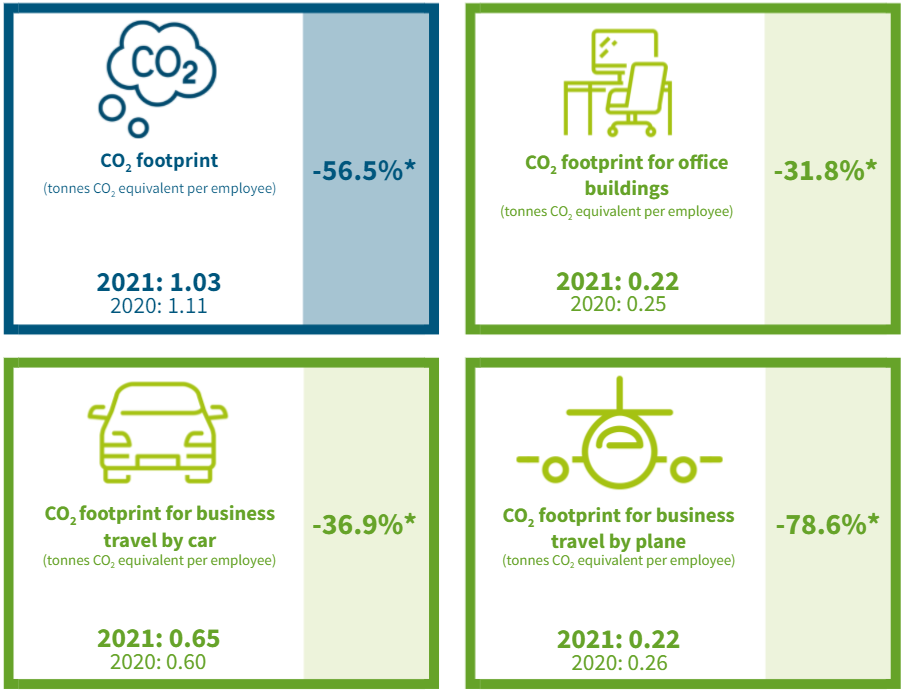
Emission reduction in our offices
Our Paris Proof commitment
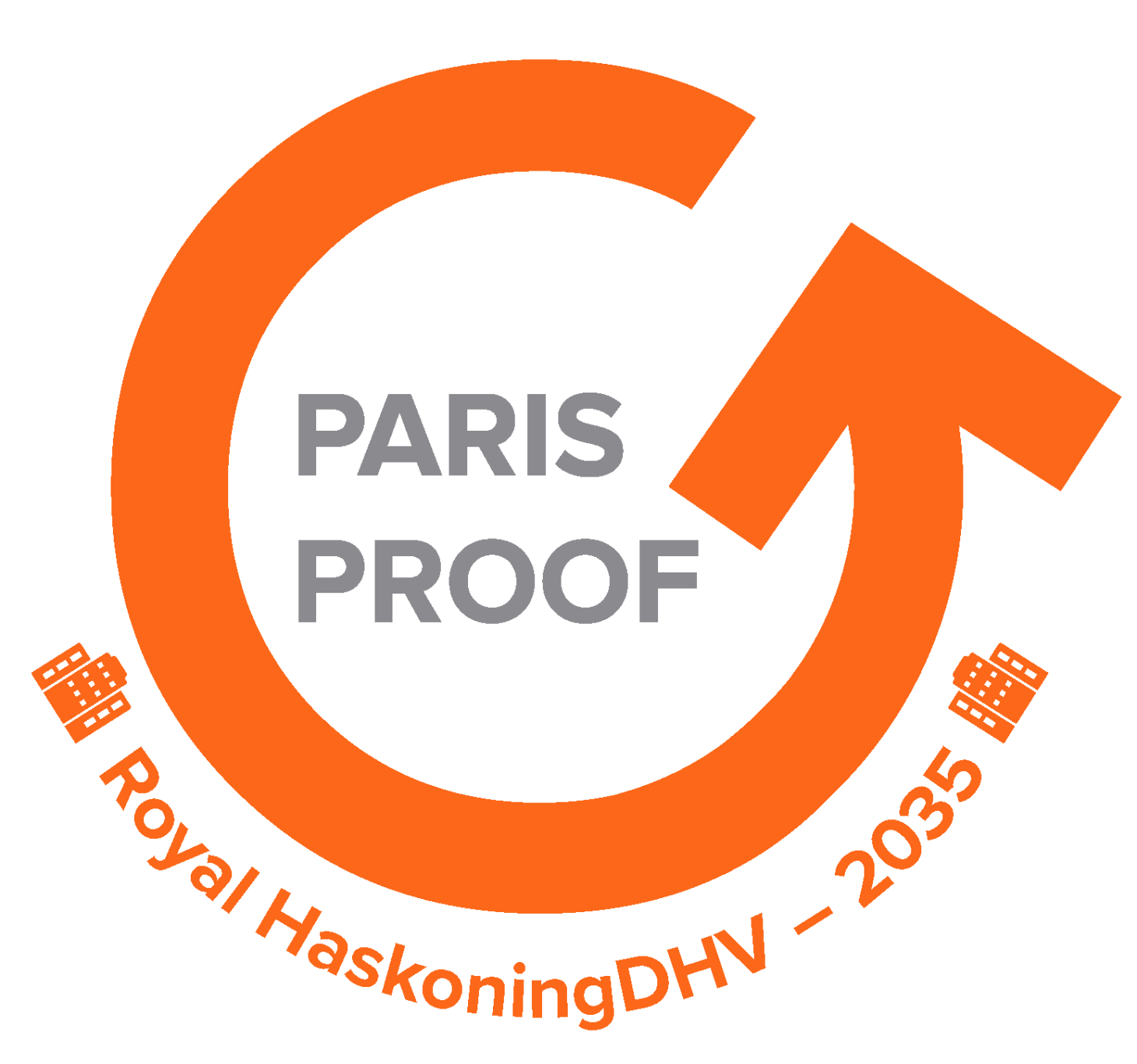
Concrete steps are urgently needed to minimise climate disruption. We are eager to take the lead and in 2020 accelerated our ambitions, committing for our offices worldwide to be Paris Proof by 2035 at the latest. It involves reducing energy consumption to levels which can be sustained by renewable supplies, as well as moving to 100% fossil-free sources. While taking steps towards becoming Paris Proof, we are also developing knowledge which we will actively share to help other organisations meet their ambitions.
To achieve our ambition, we have adopted a phased approach, starting in the Netherlands and moving to countries with a large office network, such as the United Kingdom and South Africa, before spreading across the world. We apply the same working method in each country to ensure a uniform global approach. However, there is room for adjustment to respond to individual circumstances. All calculations are based on 2019 figures to avoid distortions connected to home working during the Covid-19 pandemic.
Starting in the Netherlands
A sustainability inventory using our FastLane approach has been completed. It provides insight into the energy consumption of each office and has enabled us to draw up a road map with measures needed for each building to become Paris Proof. Our energy consumption is already lower than the country’s average and reflects the work we have done so far. From here, we need a reduction of around 50%. We have installed an energy consumption monitoring tool in all offices to make improvements visible and help identify trends pointing to follow-up measures.
With the roadmap in place, we have proceeded to planning and implementation. There are two areas of focus: building-related and use-related measures. We can influence energy consumed through working activities and here our facilities staff play an important role. Several initiatives have been realised such as replacing old, inefficient electrical items such as coffee machines and refrigerators, closing refrigerated display cases, limiting office opening times and structurally adjusting lighting so it is not switched on when the building is closed. We have also taken steps in energy generation, making preparations for installing pergolas with PV panels for electric cars and installing solar panels on building roofs.
User-related energy typically accounts for less than 25% of total consumption. Energy connected to building installations such as ventilation and heating plays a very important role in realising targets. However, we cannot influence this alone. In the Netherlands all our offices currently in use are rented and require cooperation from the landlord. Discussions on these matters continued through 2021.
Roll out in the United Kingdom, South Africa and worldwide
Roll out of the Paris Proof programme has started in the United Kingdom. Data was collected during 2020 for an inventory of energy use in 2021. Gas is hardly used for office heating in the United Kingdom and buildings often have no ventilation or cooling. This means average energy use is lower and some offices are already Paris Proof, even without insulation. In addition, availability of renewable energy is greater in the United Kingdom, impacting energy consumption per square metre of usable space. At the same time, there are pressures to provide more healthy working environments with ventilation and cooling. To assess air circulation in our offices, we have installed carbon dioxide meters.
Across the rest of the world, data collection has started. In 2022, we will make initial calculations for offices in South Africa. There is widespread awareness of our commitment, and employees across the world are sharing their ideas. In addition, when local teams are planning an office move or renewing a lease, they introduce new requirements connected to our ambition.
Achievements and challenges
Two of our buildings already meet the Paris Proof criteria – in Amsterdam and Groningen. A third, our new office in Delft, will be Paris Proof when it opens in 2024. This is a considerable challenge as it is a historic building, constructed in 1912 for 60 students in the heart of the Delft University of Technology campus. We are adapting it to provide office space for 800 employees while preserving the historic character and ensuring it is gas free with substantially reduced energy consumption. This is being achieved through a combination of techniques including heat pump, geothermal heat and solar panels as well as considerable stakeholder engagement and smart thinking.
Our roadmap provides the information needed to start dialogues with owners of our rented properties. We identified that investments to become Paris Proof differed greatly per building, ranging from €200/ m² to €750/ m². The quality of the facade is especially important in energy efficiency and the possibility for installing PV panels is often the cheapest solution. However, it appears that the possible increase in real estate value is not a sufficient reason for many to invest. This is expected to change during a transition moment but, in the meantime, we need to find pluses for both sides and create synergy for all parties. We are improving the way we approach this.
In multi-tenant offices we identified that our roadmaps needed to cover the entire building in each location because the narrow focus of our own office space was too limited to be sustainable. Through engagement and alignment with the wider group of tenants and sub-tenants, our activities are bringing impact not just for our own organisation, but for society too. Another challenge with shared offices is correctly allocating energy use for common areas such as reception, meeting rooms and car parks.
A further challenge we encountered was the assessment of district heating. We had detailed discussions with the Green Building Council in the Netherlands on this matter and provided various possible scenarios. At the end of 2021, a solution was being formalised.
All these points underline how we are leading the way on this initiative, solving challenges on the way so other companies can follow. We have also joined seminars on Paris Proof topics bringing valuable insight on subjects such as how to align with building owners.
Peterborough new office
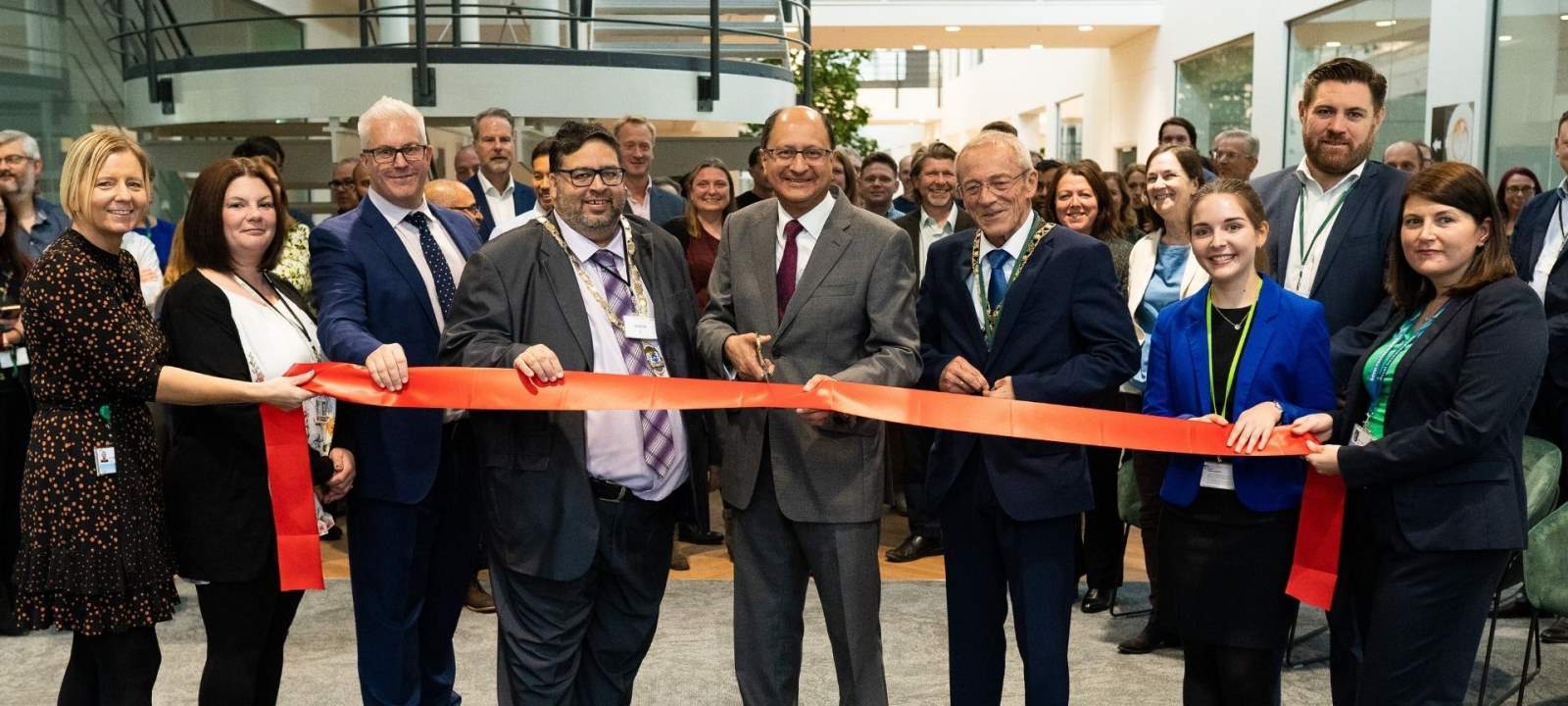
Opening of the Peterborough office
In 2021, our team at Peterborough in the United Kingdom moved to a new office. In choosing the new space, we took the opportunity to seek enhanced sustainability benefits. The new office has a higher EPC level (at B), a BREEAM Very Good rating and a Platinum Cycling Score. Installations include EV charging, motion activated LED lighting and zero waste to landfill. The carpet is made from plant based and recycled materials and we reused much of our existing furniture. Any chairs and desks that were no longer needed from our previous office were donated to a charity called Lighthouse Project Peterborough. The smaller office space includes plenty of shared meeting areas which enables optimum occupancy without increased emissions. For the well-being of our staff, the site includes healthy grab and go food, a relaxing outdoor lakeside terrace, meadow walks nearby and an indoor gym.
Sustainable IT equipment
A new process for IT assets has been developed to increase the sustainability of our IT environment. It encompasses the entire lifecycle: limiting the impact of equipment and supply logistics; encouraging sustainable usage including reduced energy demand; and exploring circularity for end of use. We are investigating local purchase and disposal options to minimise transport emissions. We continue to raise awareness among colleagues about energy efficiency. In the Netherlands and United Kingdom, we work with D-Two on the recycling and reuse of hardware in an arrangement which was expanded in 2021 to cover obsolete equipment from South Africa, Indonesia and India. Printer cartridges are returned and recycled through the Xerox Green World Alliance.
2021 | 2020 | 2019 | 2018 | ||
Desktops | 10 | 16 | 13 | 10 | |
Laptops | 1008 | 471 | 746 | 707 | |
Monitors | 166 | 186 | 85 | 135 | |
Workstations | 19 | 17 | 15 | 16 |
Achieving a zero waste office
We have been working towards Zero Waste Offices for several years and, in 2021, formalised our ambitions with a policy in the Netherlands which covers purchasing, usage and end-of-use phases of all products and materials. By 2030 at the latest, we intend that all raw materials leaving our offices will be reused or recycled and residual waste will be eliminated. As well as developing the policy, we focused on communication and planning. We started a zero waste pilot in our Groningen office, which will be evaluated and adjusted for national roll out in the future. New waste flows were added in December 2021 at our workplaces to help our colleagues easily separate waste. For workplaces we facilitate the following waste flows: paper (confidential paper is kept separate), cups, residual waste, PBD, organic waste, office supplies, ICT, small toxic, cans & PET bottles. In our offices where we have a caterer we have more waste streams, for example glass, swill, paper towels, fat and coffee grounds. Initiatives are also under way in the United Kingdom where teams have been looking at waste collection and what happens after collection. In both countries, office furniture is recycled or reused and selected office-type chairs are returned to the supplier to be revitalised or recycled.
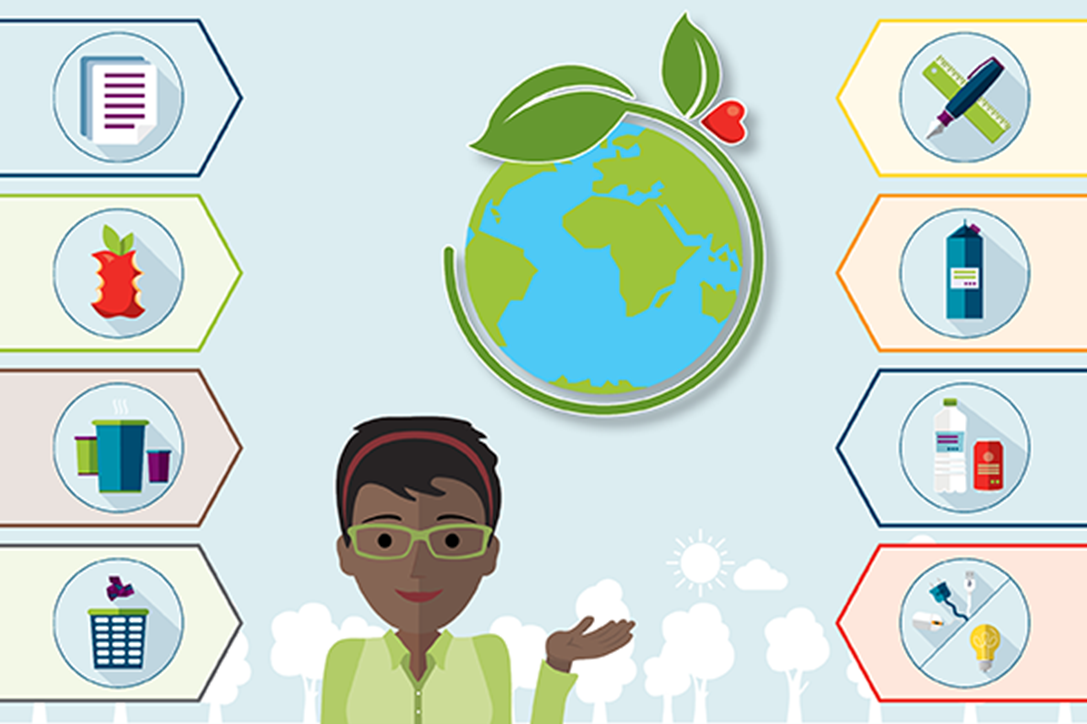
Internal communication about separating waste flows in the office
Emission reduction in mobility
Our ambitions to reduce emissions through mobility operate on a number of levels. We seek to reduce travel by encouraging virtual meetings and home working. Where travel is necessary, we encourage the use of more sustainable methods of transport such as bicycles, electric vehicles and public transport systems. Objectives for 2021 and results are reported in our Annual Report. Additional information appears below.
Working from home
Covid-19 has shown us that a new way of working is possible – one that brings sustainability benefits. For several countries we’ve developed a home working policy as working from home will be part of our new way of working even after Covid 19. To increase our understanding of how to approach hybrid working, the impact of offices and where they are needed, we surveyed all our colleagues with a questionnaire, and conducted a round table event.
E-vehicles
We are close to our ambition for 100% electric lease car fleet in the Netherlands, as reported in our Annual Report. In the United Kingdom, momentum is growing and, in 2021, our fleet expanded from 2 to 7 electric cars and from 8 to 13 hybrids. In the Netherlands, we support a government initiative which provides financial incentives for the purchase of e-bikes by employees.
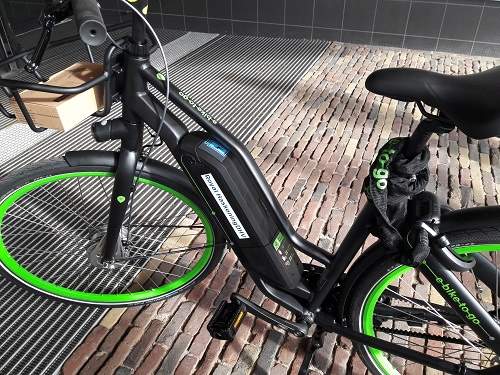
E-Bike at one of our offices
Deliveries
We use bike messengers for the collection and delivery of mail and parcels in the Netherlands. Our city logistics pilot for zero emission transport in the Hague was postponed to 2022 due to the low occupancy of offices through Covid-19. The goal of the pilot is to reduce supplier movements by bundling transport for the ‘last mile’.
Business travel
The pandemic has led to a dramatic fall in business flights and prompted alternative approaches to be used to keep in touch with clients and follow progress on projects. We do not expect this reduction to be sustained in the post-Covid environment but aim to reduce business travel (cars & flights) by 50% compared to 2019 levels.
Communication examples
Plastic Awareness Month in Indonesia and Vietnam
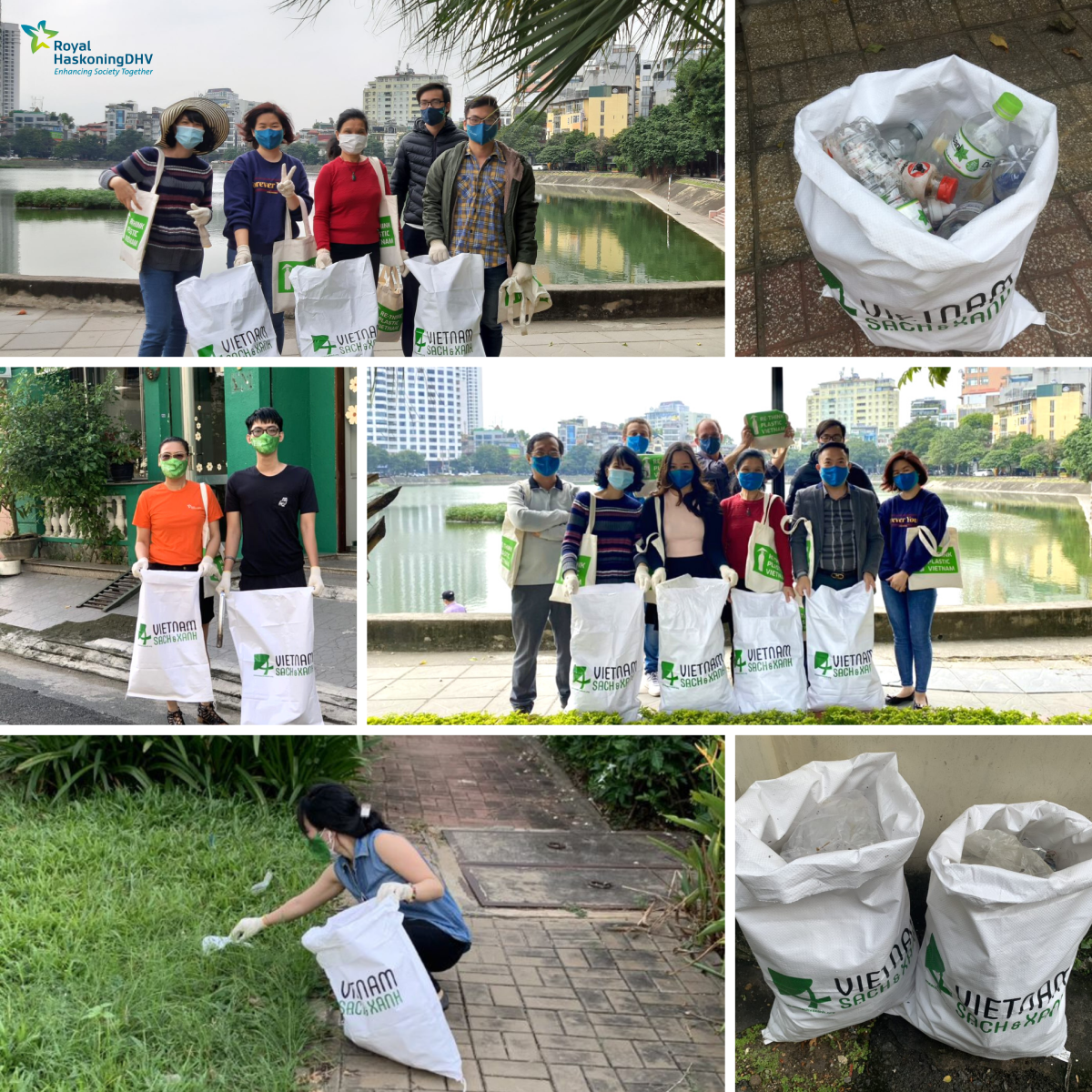
Plastic clean-up session in Vietnam.
Together with the organisation ReThink Plastic, a Plastic Awareness Month was held in Indonesia and Vietnam, minimising the use of single use plastics at our offices and in our daily lives (tracked by a weekly online survey). ReThink Plastic Vietnam is a community-led social enterprise which aims to create awareness and connect stakeholders from businesses, the community and the government. In addition to organising a couple of webinars to educate and inspire, clean-up sessions took place in Ho Chi Minh City and Hanoi.
Sustainability week in the Netherlands
A number of awareness initiatives were organised to coincide with Sustainability Week in October 2021. Our landscape team in Amersfoort demonstrated their 100% electrically powered equipment, hand tools and hedge trimmers. In Amsterdam and Eindhoven offices, a tyre pressure check service was provided which highlighted how maintaining an optimum tyre pressure leads to reduced CO2 emissions, safer driving, fuel cost savings and less tyre wear. Some offices offered a bicycle repair shop service too.
Example projects
Environment team wins Impact Award
Royal HaskoningDHV won the Environmental Impact Award at the Mersey Maritime Industry Awards (MMIA) 2021 celebrating the best of the United Kingdom’s maritime industry. The award highlights the role played by our Environment team at the forefront of environmental innovations – from wind energy and green hydrogen generation to habitat enhancement and biodiversity.
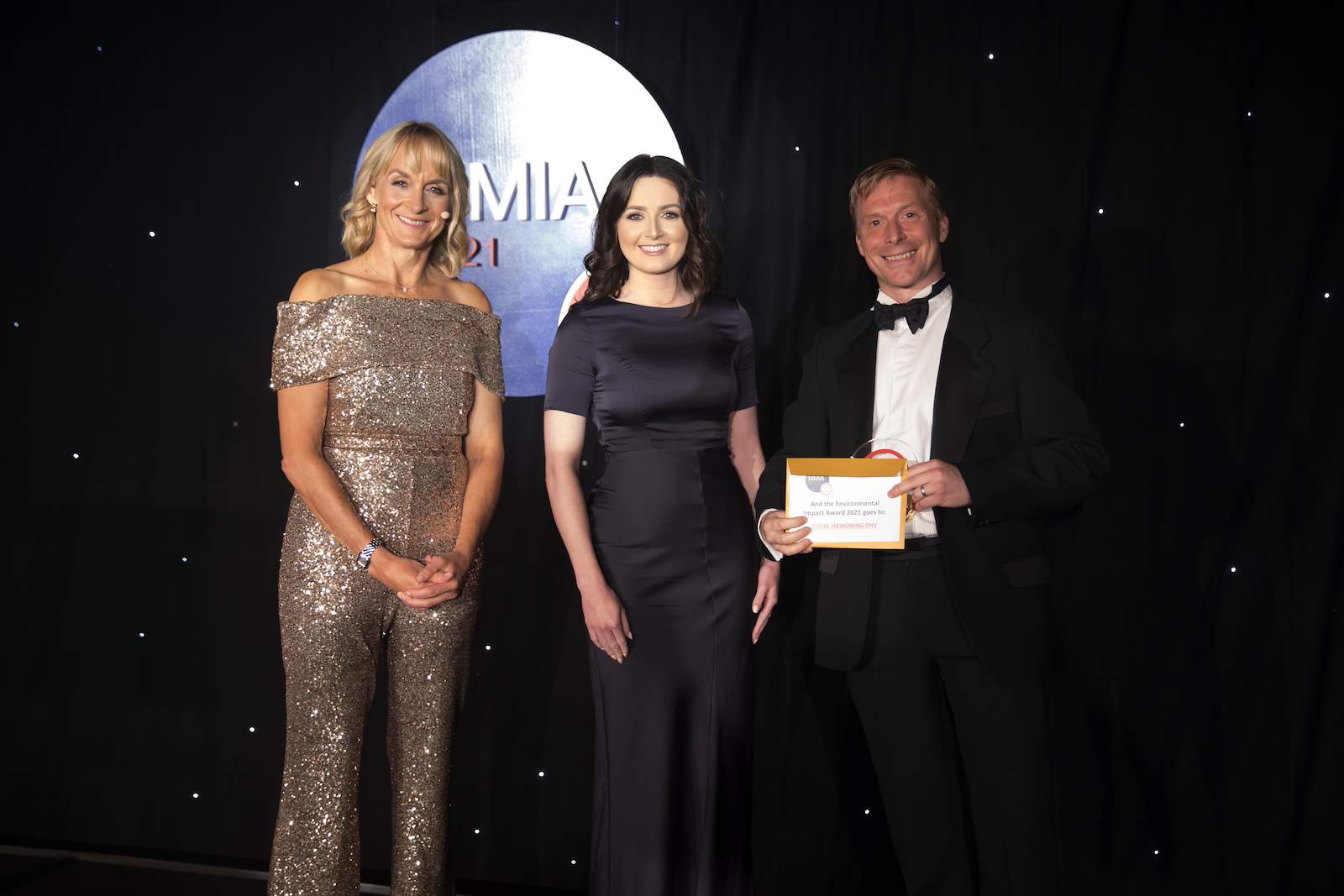
Employee Jamie Gardiner shows the received award at the Mersey Maritime Industry Awards (MMIA) 2021
Energy transition
What are the energy solutions and infrastructure needed to support the decarbonisation of vessels using the River Thames in London? These were the questions we explored as part of an energy diversity study for the Port of London Authority. Our assessments included analysis of how to power the authority’s own fleet in the future.
Our report drew on our expertise in technological solutions to support the energy transition. It considered the use of alternative fuels for the international and inland fleet - such as hydrogen, ammonia, methanol and biofuels - as well as technological aspects such as batteries and fuel cells in combination with associated shore side infrastructure including onshore power supply.
